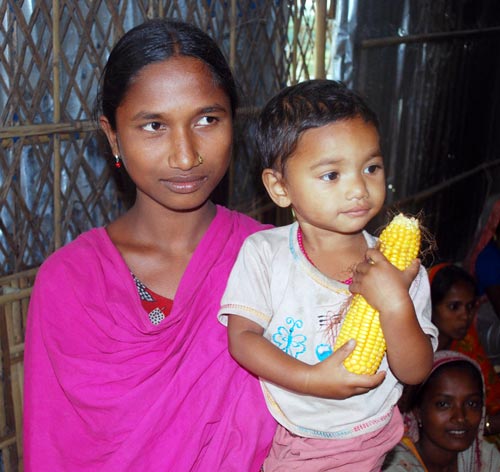 The U.S. Agency for International Development (USAID) will support a partnership to develop heat resilient maize for South Asia, as part of the US government’s Feed the Future initiative. The partnership is led by CIMMYT and involves Purdue University, Pioneer Hi-Bred, and several private and national research partners in South Asia. The aim is to develop and deploy heat stress tolerant, high-yielding maize hybrids for vulnerable, maize-dependent areas of South Asia.
The U.S. Agency for International Development (USAID) will support a partnership to develop heat resilient maize for South Asia, as part of the US government’s Feed the Future initiative. The partnership is led by CIMMYT and involves Purdue University, Pioneer Hi-Bred, and several private and national research partners in South Asia. The aim is to develop and deploy heat stress tolerant, high-yielding maize hybrids for vulnerable, maize-dependent areas of South Asia.
“Out of a total of approximately six million hectares of hybrid maize grown in South Asia, nearly a million hectares are highly vulnerable to high temperature stress,” said BM Prasanna, director of CIMMYT’s global maize program. “Nearly 80 percent of the maize in this region is rainfed and highly vulnerable to extreme weather events, including drought and high temperatures. At the same time, spring maize has become an important option for intensifying and diversifying cropping systems in South Asia, especially in the upper and middle Indo-Gangetic plains, but the crop is prone to severe heat stress as well.”
The project will be funded for five years (2012-17) and USAID contributions will be matched with in-kind support from the public-private alliance. Work will build on the elite, abiotic stress tolerant maize germplasm from CIMMYT; the technical expertise of key resource partners (CIMMYT, Purdue University, and Pioneer Hi-Bred); the maize breeding and phenotyping locations and strengths of the national research programs of Bangladesh, India, Nepal, and Pakistan; and the seed production capacity, farmer linkages, and market reach of private partners (Pioneer Hi-Bred, Vibha AgriTech, Ajeet Seeds, and Kaveri Seeds).
 Climate adaptation and mitigation
Climate adaptation and mitigation